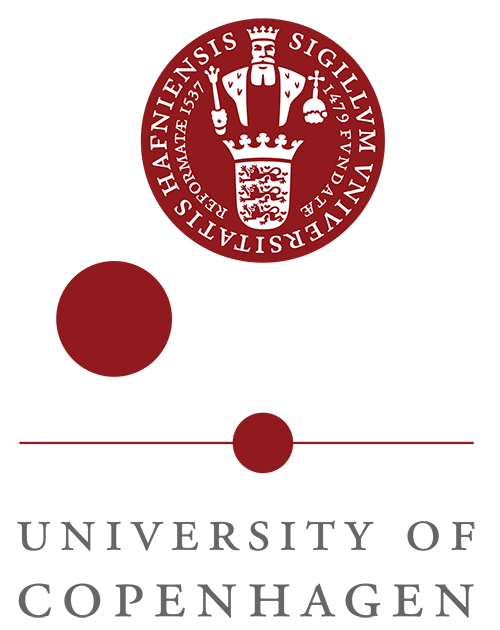Box 9
Lectures, notes, etc
Last updated: 2018-06-29 12:45:49
A general note on the dating of this material:
There is little doubt that most of this material dates from 1945-55, i.e. from Prior's first employment at Canterbury University College till he went to Oxford in 1955. Combining this with degree of formality, references etc. of the item in question, it is possible to stipulate e.g. 45-50, 50-55 etc. as the likely period of writing.
The items marked 'Logic Notes' are stipulated as 'Ca. 1953-54'. In theory, they might also be from Prior's last period at Canterbury University College (1957-58). On the other hand, the most likely supposition is that they are closely related to the writing of Formal Logic 1955a, and hence that they were made around 1953 (see [Kenny 1970, pp. 334-335], and Items from a dictionary of formal logic/box 6.). Moreover, the latest references in these notes are from late 1953 (except for note II, whose latest reference is from 1949).
It can be added that Mary Prior recalls that Arthur Prior gave out a fairly complete set of logic notes to his students in 1946-47, shortly after having been employed at Canterbury University College. Those few notes which contain no post-47 references could be identical with or reworkings of those 46-47 notes, but the fairly extensive use of polish notation in almost all of them makes this rather unlikely.
NOTE: According to the present overview in the Bodleian list of the contents of the boxes: Handouts for students.
First folder: Class notes for course(s) on logic & ethics
These seem to be collected from various courses.
- An exercise concerning four criticisms of Hutcheson. TU (2 p.). CUC. (45-50).
Hutcheson's views on logic and ethics are discussed by Prior in 1949a.
--- Per Hasle
- Ethics: logical criticisms of the theory identifying duty with self-interest. TU (9 p.). 1947.
Deals inter alia with 'Hobbes' vicious circle' etc.
--- Per Hasle
- A dictionary of elementary logical terms. TU (12 p.). Ca. 1949. Parts from Items from a dictionary of formal logic/box 6.
- Notes on the theory of deduction. TU (14 p.). (50-55). (No references, but rather formal.)
- Notes on the traditional formal logic. TU (18 p.). (Ca. 1953-54). (Marked 'Canterbury University College').
- Logic Class notes. TU (27 p.) (57–58).
Contains references to 'Formal Logic', 1955a.
--- Per Hasle
- Logic Exercises. TU (4 p.) 1965. Cf. Anderson correspondence/box 1.
- Truth-functors and truth-functions. TU (12 p.). (Ca. 1953-54). (CUC, Logic Notes I)
- Systems of propositional calculus. TU (26 p.). (Ca. 1953-54). (CUC, Logic Notes II)
- Predicates, quantifiers and descriptions. TU (22 p.). (Ca. 1953-54). (CUC, Logic Notes III)
- Modal logic. TU (14 p.). (Ca. 1953-54). (CUC, Logic Notes IV)
- Intuitionist systems. TU (7 p.). (Ca. 1953-54). (CUC, Logic Notes V).
- "In the discussion, a distinction..." TU (2 p.). Ca. 1961?
- INFO (Per Hasle): - "In the discussion, a distinction..." are the opening words, the note is untitled. It deals among other things with quantifiers and is obviously a summary of a discussion, wherein mostly Polish logicians took part. It may well have taken place during the 1961 International Colloquium on Methodology of Science, Warsaw (in which Prior took part).See also Logic in England Today/box 5.
- "Example". TU (1 p.). DATE 1953-55?
A Gentzen-style proof (compare this with with notes on Gentzen in 1955a, pp. 321-322).
--- Per Hasle
Second folder: Class handouts on Medievals
Medieval philosophy:
(Medieval texts/class handouts on medieval writers; texts by Boethius (c. 480-524), Thomas Aquinas (c. 1225-1274), Buridan (c. 1295-1358), Peter de Rivo (1420-1499), Abelard (c. 1079-1142), Paul of Venice (c. 1369-1429), Walter Burleigh (ca. 1275-1345). Plus several medieval authors on 'The Theory of Consequence'.)
- Burleigh on the subdivisions of suppositio personalis and connected topics. T (3 p.). (10 copies).
Not a text by Walter Burleigh (ca. 1275-1345) himself, but Prior's explanation (using light formal notation) of Burleigh's position.
--- Per Hasle
- From St. Thomas Aquinas, On the Power of God, translation by L. Shapcote. Q.III Of Creation, Article 1: Can God create a thing from nothing? T (5 p.). (7 copies).
- Is Knowledge Predicated Equivocally of God and of Us? TU (3 p.).
The text seems to sum up some Medieval argumentation on the issue. The style is neither Prior's nor that of a Medieval logician.
--- Per Hasle
- Peter de Rivo (1420-1499). Translations of passages from texts. T (21 p.).
Translations of passages from texts included in L. Baudry's La Querelle des Futurs Contingents (Louvain 1465-1475): Textes Inedits, pub. Librarie Philosophique J.Vrin, Paris 1950. (Etudes de Philosophie Medievale, directed by E.Gibson, No.XXXVIII.):
The passages are:
The Quodlibetal Question argued by Peter de Rivo at Louvain in '65 [1465].
From another treatise by Peter de Rivo.
From another treatise.
From a fragment of Peter de Rivo.
From a Treatise of Peter de Rivo in Answer to a Certain Work of Master Henry of Zomeren.
From Peter de Rivo's Solutions of Certain Difficulties about Future Contingencies.
--- Per Hasle
- Abelard on Parts and Wholes (Tr. from Dialectica, ed. De Rijk). T (9 p.).
Abelard: the medieval logician Peter Abelard (c. 1079-1142).
--- Per Hasle
- Appendix on Supposition. Paul of Venice: The Suppositio of Relative Pronouns - Logica Magna. T (32 p.).
Paul of Venice: the medieval logician Paul of Venice (c. 1369-1429).
--- Per Hasle
- Entailment, Possibility and Possible Truth. Translation by A.N. Prior of Buridan's Sophismata, Chapter 8. (6 copies). T (5 p.).
- INFO (Per Hasle): This was an important text for Prior. See Entailment, Possibility and Possible Truth/box 1 (With the Anderson correspondence), and Third Folder/box 9 (below).
- Aquinas: Disputed Questions on Truth: 14. On Faith. What is it to believe? (translation by one 'TCP'). T (2 p.).
- Medieval Philosophy: Texts. Existence of God: Ontological argument. Boethius (c. 480-524), Anselm of Canterbury (1033-1109), Thomas Aquinas (c. 1225-1274), Duns Scotus (c. 1266-1308). T (12 p.).
- Medieval Philosophy: Texts. The Theory of Consequence. Peter of Spain (d. 1277), Robert Kilwardby (late 13th Century), William of Ockham (c. 1285-1349), Buridan (c. 1295-1358), Albert of Saxony (c. 1316-1390), Walter Burleigh (ca. 1275-1345), Paul of Venice (c. 1369-1429). T (59 p.).
Third folder: Translations of Medievals
The folder contains translations of Aristotle and the following medieval writers: Albert of Saxony (c. 1316-1390), Thomas Aquinas (c. 1225-1274), Buridan (c. 1295-1358), Peter de Rivo (1420-1499), Peter of Spain (d. 1277), William of Sherwood (c. 1200-1270), Duns Scotus (c. 1266-1308) (his 'Opus Oxoniense', see also Opus Oxoniense below).
INFO (Per Hasle):
| Note by Mary Prior ('BR'): "Translation of Medievals - may not be published in translation, or - just possibly - not at all." These translations among other things explicitly state Prior as the translator of Buridan's Sophismata chapter 8; see also Second folder/box 9 and Entailment, Possibility and Possible Truth/box 1 (With the Anderson correspondence). It seems clear that this Buridan-text has been central at one stage of Prior's thought, see also 1962i. |
- Analogy and the Transcendentals. 1. Aristotle: Denial of Analogy in Early Writings, 2. Aristotle: Transitional Period: Exploitation of Analogy, but Natural Priority of Substance not dependent on Focal Meaning Theory, 3. The Academy: Evidence that the Academy had grasped the notion of Focal Meaning, 4. Aristotle: Theory of Focal Meaning. T (41 p.).
- Jean Buridan (c. 1295-1358): Questions on Truth. (From: Ioannis Buridani, In Metaphysicam Aristotelis Questiones, Liber VI; edition of Iodocus Badius, Paris 1518). T (36 p.).
- Selections from the Summa Logicae of Albertus de Saxonia (i.e. Albert of Saxony, c. 1316-1390).
Note attached (from G. Donnelly): "Attached is some stuff from Albert of Saxony that you may find interesting. The Buridan is bogged down in secretarial morasses and time and motion money requirements; I shall, however, do the best I can to get it out to you as soon as I can." T (30 p.).
--- Per Hasle
- Peter de Rivo (1420-1499). Translations of passages from texts. T (21 p.). The same item as Second folder/box 9.
- Opus Oxoniense, lib.II, dist.III, q.I. T (10 p.).
A famous work by Duns Scotus (c. 1266-1308), which is also known as the 'Ordinatio'. From 1300 onwards Duns Scotus worked on this Oxford commentary on the 'Four Books of Sentences' by Petrus Lombardus (c. 1100-1160).
--- Per Hasle
- St. Thomas Aquinas (c. 1225-1274). In Aristotelis Libros Peri Hermeneias et Posteriorum Analyticorum Expositio. Liber I, Lectio XIII, 10,11. T (2 p.). (2 copies).
- The Theory of Supposition. 1. William of Sherwood (c. 1200-1270): Introductiones ad logicam, 2. Peter of Spain (d. 1277): Summulae logicales, 3. Thomas Aquinas (c. 1225-1274), 5. Jean Buridan (c. 1295-1358): Sophismata, 6. Albert of Saxony (c. 1316-1390): Perutilis logica, 7. Walter Burleigh (ca. 1275-1345): De puritate artis logicae, 8. Paul of Venice (c. 1369-1429): Logica magna, 9. Vincent Ferrer: De suppositionibus dialecticis, 10. Peter Tartaret: Commentary on Peter of Spain's Summulae logicales, 11. William of Ockham (c. 1285-1349): Summa logicae, 'Suppositio' of terms (in general). T (32 p.).
- Texts by: 1. Peter of Spain (d. 1277): Summulae logicales, 2. Robert Kilwardby (late 13th Century): Commentary on Aristotle's Prior Analytics, 3. Pseudo-Scotus: Commentary on Aristotle's Prior Analytics, 4. William of Ockham (c. 1285-1349): Summa logicae, Jean Buridan (c. 1295-1358) [Unnumbered], 8. Albert of Saxony (c. 1316-1390): Perutilis logica, Walter Burleigh (ca. 1275-1345): De puritate artis logicae, 10. Paul of Venice (c. 1369-1429): Logica magna. T (27 p.).
Most of these texts are translated by Ivo Thomas.
--- Per Hasle



Per F. V. Hasle ©
-
Department of Information Studies
-
University of Copenhagen
-
South Campus, build. 4
-
Njalsgade 76
-
DK-2300 Copenhagen S
-
Denmark
- per.hasle@hum.ku.dk
Peter Øhrstrøm ©
-
Department of Communication and Psychology
-
Aalborg University
-
Rendsburggade 14
-
DK-9000 Aalborg
-
Denmark
- poe@hum.aau.dk
David Jakobsen ©
-
Department of Communication and Psychology
-
Aalborg University
-
Rendsburggade 14
-
DK-9000 Aalborg
-
Denmark
- davker@hum.aau.dk
